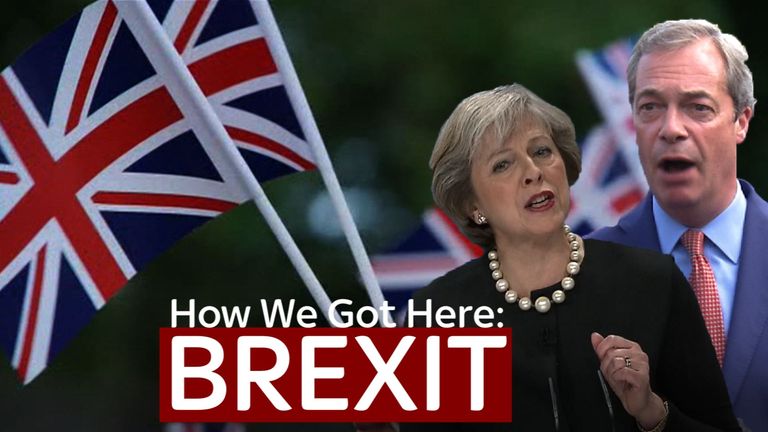Brussels pushes Theresa May to trigger Brexit in early March
EU officials have been pushing the PM to notify leaders at the next council summit, to avoid clashing with the French elections.
Wednesday 8 February 2017 16:29, UK
Brussels is bracing itself for Theresa May to trigger Article 50 on 9 March - but actual Brexit negotiations are unlikely to start until June.
Manoeuvring Senior EU officials have been pushing London to formally notify EU leaders at the next council summit in a few weeks, to avoid clashing with the French elections in April.
If the Brexit trigger Bill, currently going through Parliament, doesn't face difficulties in the Lords it will be given Royal Ascent on 7 March, two days before the European Council summit.
This also avoids causing offence at the end of March, when Europe celebrates 60 years since the Treaty of Rome, the founding document of the EU.
Formal notification from the UK, which comes in the form of a letter, will not see the start of negotiations. An emergency EU Council meeting of the 27 will need to take place first.
This could take four to six weeks to organise, though Sky News understands early April is most likely. The first round of the French Presidential elections takes place on 23 April.
The council, of the other 27 EU leaders, will then "set out the overall positions and principles" of their negotiation mandate.
Following that, Article 50 stipulates that the General Affairs Council (GAC), which is made up of EU affairs ministers and foreign ministers, would handle the procedure.
It would authorise the opening of negotiations by the European Commission, based on the guidelines.
It is only then that the Commission and their chief Brexit negotiator Michel Barnier can begin detailed talks with officials and ministers in London.
Meanwhile, Irish Prime Minister Enda Kenny is to make a Brexit statement next Wednesday and hold a second all-island forum the following weekend.
Speaking in the Irish Parliament on the type of post-Brexit border that would be in place, Mr Kenny said it would depend on what kind of customs union membership the UK achieved.
The opposition leader Micheál Martin argues however that a hard border was now inevitable and no warm words between the Taoiseach and Mrs May would change that.



